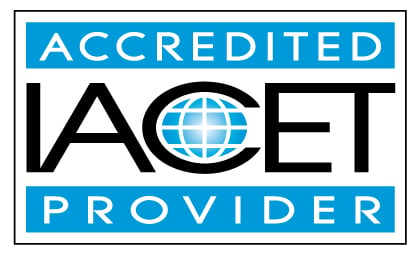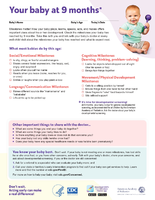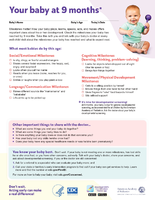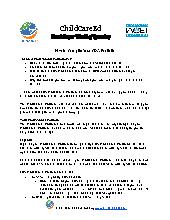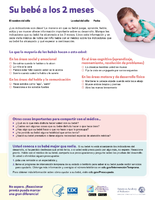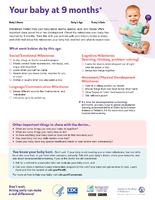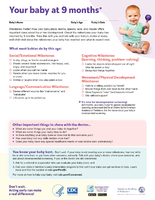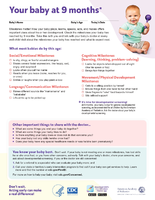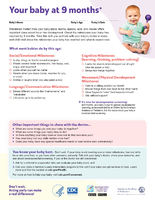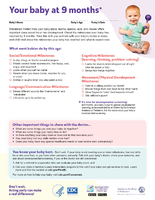45 hour Growth and Development Birth-age 12 ONLINE
Are you passionate about shaping the future of our youngest generation? ChildCareEds 45-Hour Growth and Development Training is your essential gateway to a fulfilling career in child care. Dive into the enchanting world of childhood development and early education with a comprehensive program that empowers you to provide the best care and education for children aged from birth through 12 years old.
Our 45-Hour Growth and Development Training is your key to nurturing the future. By understanding the complexities of child development, you become an integral part of a childs journey, shaping them into confident, resilient, and well-rounded individuals. Whether you aspire to run your own child care center, be a trusted teacher, or contribute as vital support staff, this course is your first step in making a significant impact on young lives.
*Maryland Providers*
This 45 hour course satisfies half of the MSDE requirement of 90 hours for child care teachers and directors. This course and a 45-hour course in the age-appropriate curriculum ( #preschool, infant- #toddler, or #school-age ) are required to complete the 90-hour certification for child care. If you have been issued a voucher from MSDE for this course it MUST be completed 2 weeks before the expiration date that is on your voucher. Please check your voucher for this date. Training Approval number PSO-30299 Aligns with MD Staff Credential levels 2-4, and earns 4.5 CEU (45 clock hours)
By the end of this training, the learner will be able to:
- Identify resources addressing health, safety and nutrition topics (CPR, 911, CDC, WIC, Poison Control)
- Demonstrate understanding of an IEP and removing barriers
- Demonstrate an understanding of translating assessment and observational information into short and long term goal development
- Identify strategies to prevent Adverse Childhood Experiences
- Demonstrate an understanding of brain development in young children.
- Identify environment and genetic influences on development.
- Demonstrate understanding of brain development in young children.
- Demonstrate an understanding of how ongoing preventive health and wellness care affects child development
- Identify strategies to promote cultural diversity and acceptance in the child care environment.
- List examples ways to incorporate inclusion and equity in the classroom
- Identify resources to help children discover, learn, and experience in a natural play environment.
- Identify significant events surrounding the evolution of early childhood education in America.
- Identify current events impacting Early Childhood Education.
- Give examples of ways to show respect for family differences.
- Demonstrate an understanding of how to create a natural outdoor classroom that supports child development in all areas.
- Identify specific considerations and resources for implementing an outdoor classroom program.
- Define culture and cultural competency
- Recognize the legal foundations, including the IDEA Act and Section 504.
- Define developmental domains.
- Recognize the importance of a positive and respectful attitude in working with all children and their families.
- Recognize the differences between major theories.
- List which professions are mandated reporters.
- Describe the benefits of an outdoor classroom.
- Describe the steps teachers should take to identifying challenging behaviors.
- Identify ways to reflect on one's own personal perspectives with courage and/or humility
- Identify ways to interact respectfully and appropriately in a variety of cultural contexts
- Explain how theory is reflective in the child care environment.
- Identify types of abuse in infants and toddlers.
- Identify theorists of guidance and discipline
- Identify factors that influence learning.
- Recognize informal and formal assessments to plan activities, individualize programs, and improve program quality.
- Demonstrate an understanding of the impact of culture and diversity in relation to school readiness.
- Understand the relation between how material and equipment selection assist with lesson plan development and implementation.
- Demonstrate an understanding of potential violations of confidentiality and take steps to reduce the risk of occurrence.
- Demonstrate an understanding of typical and atypical development from age 2 to 5.
- Identify different types of barriers for mixed ages with disabilities and ways to adapt curriculum to fit their needs.
- Demonstrate an understanding of how positive guidance promotes sound social and emotional development.
- Give examples of strategies in responding to typical child care situations.
- Demonstrate an understanding of approaches to learning
- Define the meaning of professionalism in child care.
- Identify strategies to make connections and interact substantively with those who are different from oneself
- Define the similarities between major theories.
- Identify significant events surrounding the evolution of early childhood education throughout the world.
- Identify strategies to listen while withholding judgement about the new or unfamiliar
- Demonstrate understanding of an IFSP and removing barriers
- Demonstrate an understanding of how chronic illness can affect development.
- Identify strategies in promoting sound health and safety principles for in child care.
- Identify different learning styles of young children
- Identify the different learning concepts related to block play.
- Demonstrate an understanding of how to be open to new perspectives and diverse others.
- Identify the key elements of an effective staff mentor program.
- Identify stages and milestones of development for ages 1 to 5
- Identify the role of family in society
- Identify different types of play.
- Identify the nutritional needs of children aged four and above.
- Identify and use community resources to support learning.
- Recognize theory and theorist in relation to child development and approaches to learning.
- Define social emotional development in young children
- Demonstrate an understanding of diverse perspectives, and navigate the ambiguity and complexity that comes with that.
- Demonstrate an understanding of the value and importance of complex characteristics of children’s families and communities
- Demonstrate communication skills that enable intercultural communication, including effective listening skills
- List the steps to complete a report on abuse and neglect.
- Identify the importance of professional development for child care professionals and strategies to make meaningful choices.
- Demonstrate understanding of using assessment and observations for short and long term goal development for ages four and above.
- Describe the meaning of positive discipline in the classroom.
- Identify causes of obesity in children.
- Identify the symptoms and signs of poor time management in the child care environment.
- Identify methods of assessments for mixed ages.
- Define active play in the early childhood classroom and describe its benefits for young children.
- Describe the various ways teachers can address challenging behaviors in the classroom.
- Demonstrate an understanding of how the community in which a child lives influences development
- Demonstrate an understanding of observational techniques that result in accurate and objective observation
- Identify parenting styles and the influence those styles have on child development
- Criteria to earn CEUs:
- Certificates are awarded when the following criteria have been met by the learner:
- Class has been paid in full
- All material has been reviewed
- All review questions and final test have been completed with a passing score of 80% or higher.
- Learning Assessment Method:
- Learners will be assessed through questions after every section is completed. Learners will not be
allowed to proceed to the next section of the training until all questions have been answered correctly.
Learners will be presented with a final test composed of true/false and multiple choice questions.
Upon successful completion of the training, learners will receive their certificate by email.
- Learning Methodology:
- Online material will be presented in the form of slides,
accompanied with speech. Videos will be used to demonstrate ideas and concepts. Charts and tables
will be used for illustration.
- Logistics/Required Technology:
- A stable internet connection is required for the completion of this course. Users are highly encouraged to take their online course on Google Chrome on either a laptop or desktop computer. Speakers and/or headphones are also required to hear speech.
- Payment Policy:
- Payments need to be made in full. No refunds will be issued after starting the class.
- Proprietary or conflict of interest disclosure:
- Unless otherwise stated in the course description none of H & H subject matter experts and editor has any conflict or proprietary interests related to the material they prepared in this course.
- Support Services:
- Please visit our contact us page
You are purchasing a session of an online training that includes online assessments. Your certificate will be emailed to you once you pass the final exam with a passing grade of 80%.
Your certificate will bear the name you provided to us when you signed up. For support and questions regarding the material presented in this class please contact us at info@childcareed.com. Please consult our frequently asked questions page for other questions or feel free to contact us.
No prerequisites are required for the completion of this course.
Hours breakdown
45 CDTopics / Categories
Group AdminInfant/ Toddler Educators
Preschool Educators
School-Age Providers
Family Child Care Providers
Administrators
Not Applicable
Basic
Health, safety and nutrition
Curriculum and Environment
Professionalism
Child development
Community and Family
Administration and Management
Special Needs
Latest Jobs
- New Training Requirements from Office of Child Care/MSDE
- How to Become a Pre-School Teacher in a Child Care Center in Maryland
- Why Take a 45 Hour Child Care Training?
- MSDE Approved 45 Hour School AGE Methods and Materials
- UNITED STATES OF AMERICA - Maryland
- Promote Yourself!
- UNITED STATES OF AMERICA - Louisiana
- Looking for a Career Change?
- 45 Hour Training: Lead Caregiver Requirements in Michigan
- How to Start a Daycare with Success
- How to Start a Daycare with the Right Qualifications
- MSDE Training Voucher Program: Benefits for Directors
- Maryland Child Care Training Voucher Program: Empowering Child Care Professionals
- Navigating Lead Caregiver Education and Training Requirements in Michigan
- How ChildCareED is leading the evolution of child care education in Maryland?
- 45 hour Growth and Development
- Where Can I Study ECD online? The Best Online Resources for Aspiring Educators
- Why Professional Development & Continuing Education Spark Joy (and Growth!)
- 45 Hour Infant and Toddler Certification Online Georgia

